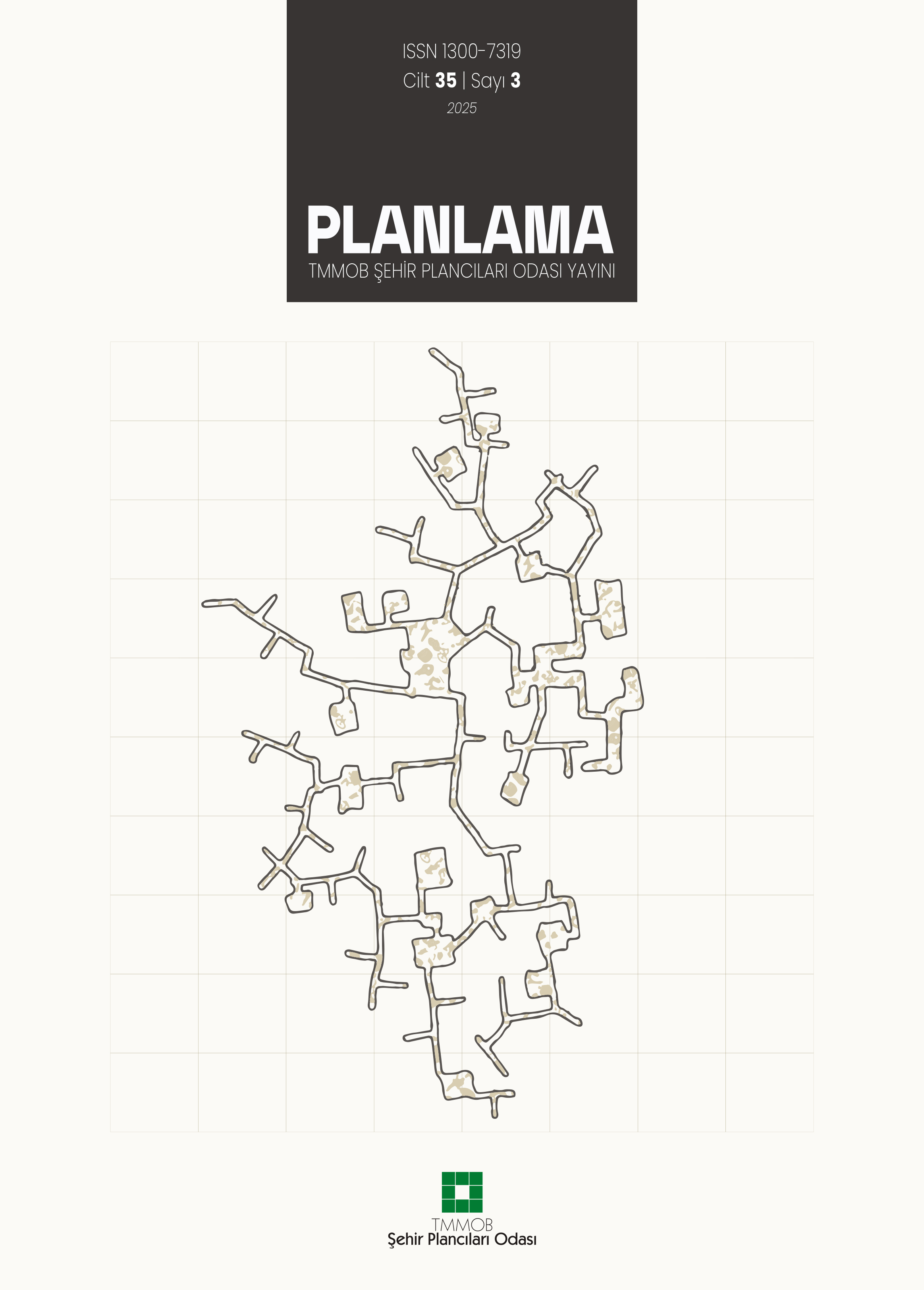Mahallede Kapsayıcı Kamusal Yaşam İçin Erişilebilirlik Denetimi
İlkay Dinç UyaroğluOSTİM Teknik Üniversitesi, Mimarlık ve Tasarım Fakültesi, İç Mimarlık ve Çevre Tasarımı Bölümü, AnkaraMekânsal erişilebilirlik, kentlerde adil ve kapsayıcı kamusal yaşamın oluşumu için ön koşullardan birisidir. Herkes için eşit erişilebilir kentlerin oluşumunda, düşünsel, mimari, yasal ve örgütsel sistemin önemli etkisi vardır. Kanunlarda, yönetmeliklerde ve tasarım standartlarında yer alan erişilebilir tasarım konusundaki kurallar, normlar ve ölçütler, gerekli mimari tasarım kriterlerini sunmalarına rağmen, kamusal mekanlarda fiziksel erişimle ilgili problemler yaşanmakta ve bu nedenle insanlar hala temel hak ve özgürlüklerinden mahrum kalmaktadırlar. Bu çalışma, Türkiyede yasal belgeler çok açık bir şekilde kapsayıcı kamusal mekanların ve sokakların oluşumuna dair hükümler içermesine rağmen, neden hala kentlerimizde bu dönüşümlerin gerçekleşmediğini anlamayı hedeflemektedir. Bu kapsamda, mahalle ölçeğinde erişilebilirlik uygulamalarının düşünsel, mimari, yasal ve örgütsel alt yapısının değerlendirilmesi amaçlanmaktadır. Kapsayıcı kamusal mekanların tasarımı ve uygulama sürecindeki denetimi kavramı, Kevin Lynchin (1981) verimli ve adil şehir yaşamı üzerine kurduğu İyi Şehir Formu teorisinde tanımladığı erişim ve kontrol parametreleri ile tartışılmaktadır. Mahalle yönetiminin katılımcı bir yaklaşımla aktif bir şekilde sürdürülmeye çalışıldığı Çiğdem Mahallesi, bu çalışmada örneklem olarak seçilmiştir. Kolektif bir yapı içinde yönetilen Çiğdem Mahallesinde, ilgili paydaşlarla derinlemesine söyleşiler yaparak, erişilebilirlik denetiminin gerçekte nasıl deneyimlendiği, bir arada çalışma ve iletişim ortamının varlığı ve zayıflıkları tartışılmaktadır. Çalışmanın kuramsal yaklaşımı ve alan çalışmasından edinilen bilgiler ışığında, çalışmanın sonucu mahalle ölçeğinde erişilebilirlik izleme ve denetleme süreci ve örgütsel iletişim ortamı üzerine değerlendirme ve öneriler içermektedir.
Anahtar Kelimeler: Denetim, erişilebilirlik, kamusal mekân, kapsayıcı tasarım; mahalle.
Controlling Accessibility for an Inclusive Public Life in a Neighbourhood
İlkay Dinç UyaroğluOSTİM Technical University, Faculty of Architecture and Design, Department of Interior Architecture and Environmental Design, AnkaraSpatial accessibility is one of the prerequisites for creating an inclusive public life in cities. Its success depends on intellectual, architectural, legal, and organisational aspects. Although legal rules about accessibility included in laws, regulations, and technical design standards mandate necessary architectural criteria for an inclusive public life, individuals might still be excluded from urban spaces and therefore deprived of their fundamental rights and freedoms in public life. This study focuses on why inclusive urban streets and public spaces have not been created yet in Turkey, although legal documents clearly dictate requirements for providing accessible environments for all. In this context, it is aimed to evaluate the intellectual, architectural, legal, and organizational infrastructure of accessibility practices at the neighbourhood scale. The concept of 'control' in the design and implementation of inclusive public spaces is discussed with the parameters of 'access' and 'control' defined by Kevin Lynch (1981) in his theory of 'Good City Form' based on efficient and fair city life. Çiğdem Neighbourhood, where local management is tried to be carried out with a participatory approach, was chosen as the sample area in this study. In Çiğdem District, which is managed in a collective structure, in-depth interviews are held with relevant stakeholders, and how accessibility management is experienced, the existence and weaknesses of a working and communication environment together are discussed. In the light of the theoretical approach of the study and the information obtained from the field study, the result of the study includes evaluations and suggestions on the accessibility monitoring and controlling process and organizational communication environment at the neighbourhood scale.
Keywords: Control, accessibility, public space, inclusive design; neighbourhood.
Makale Dili: Türkçe














